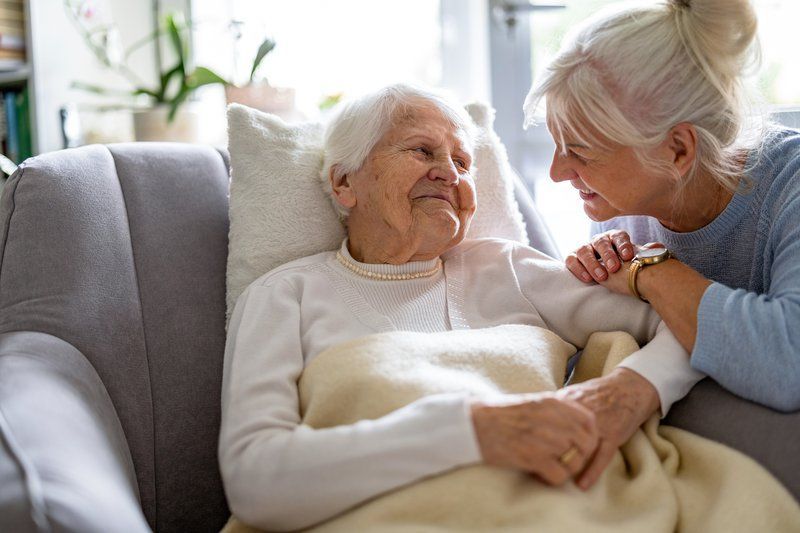BLOG
How Assisted Living Communities Encourage Volunteerism Among Residents
Volunteerism is an integral part of life in many assisted living communities, offering residents a way to stay active and engaged. By participating in volunteer activities, residents contribute to their community and experience personal growth, improved health, and a stronger sense of belonging. These communities recognize the value of volunteerism and actively encourage residents to get involved, providing numerous opportunities to contribute to their community and interests and skills.
Through volunteerism, residents can build meaningful relationships, expand their skills, and maintain connections with the broader community. This involvement helps foster a vibrant and inclusive environment where every resident feels valued and purposeful. The benefits of volunteerism extend beyond the individual, positively impacting the entire community and enhancing the overall quality of life in assisted living settings.
Fostering a Sense of Purpose and Belonging In Assisted Living Communities
Assisted living communities encourage volunteerism to help residents find a renewed sense of purpose. By engaging in meaningful activities, residents can contribute to the community, enhancing their self-worth. This sense of purpose is particularly important for older adults who may feel a loss of identity after retirement. Volunteerism helps them stay connected to the world around them.

Volunteer activities also foster a strong sense of belonging. When residents work together on volunteer projects, they build relationships and form bonds with others in the community. These connections reduce feelings of isolation and loneliness, contributing to overall mental well-being. The sense of belonging that comes from volunteering strengthens the fabric of the assisted living community.
Additionally, volunteerism allows residents to share their skills and experiences with others. Whether it’s mentoring younger residents or assisting with community events, these opportunities provide a platform for residents to continue contributing to society. This exchange of knowledge and skills benefits both the residents and the community, creating a dynamic and supportive environment.
Promoting Physical and Mental Health
Volunteerism in assisted living communities contributes significantly to both physical and mental health. Engaging in volunteer activities keeps residents physically active, which is crucial for maintaining mobility and overall health. Whether it’s gardening, helping with community events, or participating in light physical tasks, these activities keep residents moving.
Volunteerism also benefits mental health. Volunteering can reduce stress and anxiety, providing residents a sense of accomplishment and fulfillment. The positive emotions associated with helping others contribute to a more optimistic outlook. These mental health benefits are especially valuable in maintaining cognitive function and emotional stability.
Regular volunteer activities also provide structure and routine, which are important for mental well-being. Knowing they have a purpose and tasks to complete helps residents feel more organized and in control. This routine can lead to improved sleep patterns, better mood, and a more positive outlook on life. Overall, volunteerism plays a crucial role in promoting a healthy lifestyle in assisted living communities.
Building Stronger Bonds In Assisted Living Communities
Volunteerism helps build stronger community bonds within assisted living environments. When residents work together on projects, they develop a sense of camaraderie and teamwork. These shared experiences foster mutual respect and understanding, which are essential for creating a harmonious living environment.
Community volunteer projects also encourage intergenerational interactions. In many assisted living communities, residents collaborate with local schools, youth groups, or other organizations. These interactions bridge the generation gap and promote a sense of unity across age groups. The resulting relationships enrich the lives of both the residents and the younger participants.
Moreover, volunteerism encourages residents to take an active role in the life of their community. This involvement helps create a vibrant and engaged community where everyone feels valued. The sense of ownership and pride that comes from contributing to the community enhances the overall quality of life. As a result, the community becomes more cohesive and supportive.
Expanding Skills and Lifelong Learning
Volunteerism provides residents with opportunities for lifelong learning and skill development. Many volunteer activities require residents to learn new skills or adapt existing ones. This continuous learning keeps the mind sharp and promotes cognitive health. Residents who engage in volunteerism often discover new interests and talents.

Assisted living communities offer various volunteer opportunities that cater to different skill levels and interests. Whether it’s organizing events, teaching classes, or assisting with administrative tasks, there’s something for everyone. These opportunities allow residents to stay mentally engaged and contribute in ways that align with their strengths.
In addition to personal growth, volunteerism also provides residents with a sense of achievement. Learning new skills and completing tasks boosts confidence and self-esteem. This feeling of accomplishment is especially important for older adults, as it reinforces their ability to contribute meaningfully to their community. The ongoing process of learning and growth enriches the lives of residents and enhances their overall well-being.
Strengthen Connections with the Wider Community
Assisted living communities encourage volunteerism to strengthen connections with the broader community. Many communities partner with local organizations, charities, and schools to create volunteer opportunities. These partnerships allow residents to give back to the wider community and stay connected to the world beyond the assisted living environment.
Participating in external volunteer activities also helps residents feel more integrated into society. These activities allow them to interact with people of all ages and backgrounds, fostering a sense of inclusion. By contributing to the larger community, residents can maintain their social ties and remain active members of society.
Volunteerism also enhances the reputation of the assisted living community. When residents actively contribute to local causes, it reflects positively on the community. This positive image can attract new residents and strengthen the community’s standing within the local area. The connections formed through volunteerism benefit the residents and the assisted living community.
Ready To Volunteer In Your Assisted Living Communities?
Assisted living communities recognize the immense value of volunteerism for their residents. By fostering a sense of purpose, promoting health, building community bonds, encouraging lifelong learning, and strengthening connections with the wider community, volunteerism enriches the lives of residents and enhances the overall community atmosphere.
Ready to learn more about how volunteerism can enhance life in an assisted living community? Contact us today to explore the opportunities available.
When Care Matters! The best care for what matters most. Contact us today, or download our free Family Decision Toolkit guide for more information.















